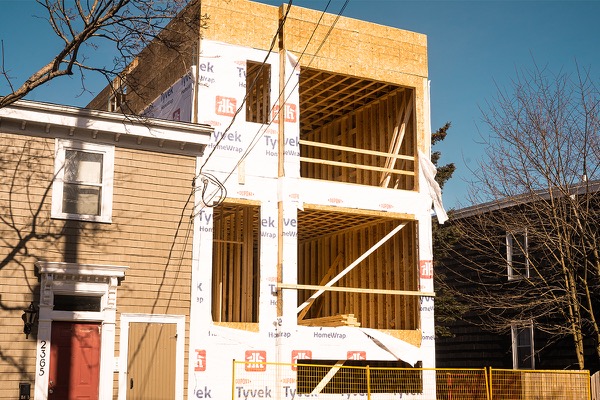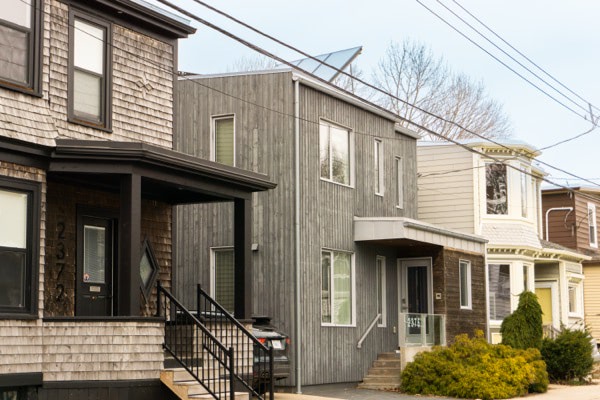How fast can you pay your mortgage off? Can you speed up the process? Here’s what you need to know!

New home construction: All you need to know
Are you looking to enter the housing market, but are finding existing inventory to be too low? You’re certainly not alone. Housing supply continues to stay low in most parts of the country, which may lead you to wonder if you should build your own home instead. As the need for housing grows, new home construction is getting more and more attention. Building your own home can be a good move, as it allows you to personalize your own space without competing with other buyers over pre-built homes. Of course, with new home construction, there is a lot to think about in terms of process. We’ve compiled a list of basics you should consider before moving forward with new home construction!
What is new home construction?
New home construction is, of course, when you build your own house as opposed to purchasing an existing, move-in ready home. A construction mortgage is the type of financing you will need for this project. Instead of getting a mortgage on the home, you’re basically getting a mortgage on the costs of building the home. You can read more on new home construction, construction mortgages, and how we as mortgage brokers can help with the process here.
How does the mortgage process work?
New home construction is different from buying an existing home, so it makes sense that the mortgage process is going to be different as well. The mortgage is loaned to the borrower in different stages, called draws, as opposed to the full amount being granted from the start. Lenders may have their own schedules for releasing draws, but there are often common points in the process. The four big stages most lenders pay attention to are:
- Completing basic foundation work (15 per cent of total cost)
- Roofing and walling (25 per cent of total cost)
- Plumbing and drywalling (30 per cent of total cost)
- Completing the rest of the home (30 per cent of total cost)
Between building stages, lenders will likely have an inspector ensure the home is being completed properly before they give out the next round of financing.
Why is it a bigger risk for the lender?
It’s important to know not every lender will provide a construction mortgage, which is why a broker is handy to help you find the right lender for the job. New home construction is a different process with more risks and more complicated steps. Since you’re building a new home from scratch, lenders know you don’t have a home to use as collateral in case of a mortgage default. This could result in a lender having half of a built home they are responsible for. Plus, building a home means there’s always opportunities for things to go wrong at some stage in construction. Whether it’s issues with building the home itself or problems with the borrower’s finances, lenders overall have less assurance. For these reasons, you can’t assume all lenders will provide this type of mortgage. The ones who do will charge higher interest rates, which is something you need to prepare for.
What are some of the pros and cons?
Pros
The biggest advantage of new home construction is that it will be your own to customize and build to your standards. For people with a creative edge who love designing homes, or those who have very specific requirements for a home, this is a big plus. Having the control to choose your own finishes, layout, and features is a huge selling point for many buyers who want to personalize every inch of their space.
Plus, your new home will be, well, brand new! Moving into a pre-owned home means previous owners have had the chance to cause damage to it over time through general wear and tear. Older homes in particular are more likely to need more attention and fixes as time goes on. Whether it’s issues with roofing, water stains on the ceiling, or faded old carpet, an older home means more repairs. New home construction guarantees a clean, fresh start, with minimal issues or extra expenses for fixes in the short term.
Cons
On the flip side, new home construction definitely has some drawbacks. The price of building your own home is high. Not only are you paying for a mortgage with a higher interest rate, but you are also paying for the builders and materials to build your home from the ground up. Construction mortgages are often at least one per cent higher in interest than traditional mortgages.
It’s also harder to qualify for a construction mortgage. Since lenders are taking more of a risk on you, they will want more proof of your ability to manage a mortgage. This means you might need a bigger down payment to show lenders that you have a good savings history, and you won’t need as big of a mortgage. Your credit score may also have to be higher than usual. You may be able to use a private lender’s services for more flexibility, but their interest rates will be high.
New home construction is a bold project that can benefit many home owners. However, it’s important to know how the process works and whether it’s a good fit for you before pursuing it. We have experience helping borrowers secure the construction mortgage they need to build their new home.
If you have questions about new home construction, get in touch with us at Clinton Wilkins Mortgage Team! You can call us at (902) 482-2770 or contact us here.


